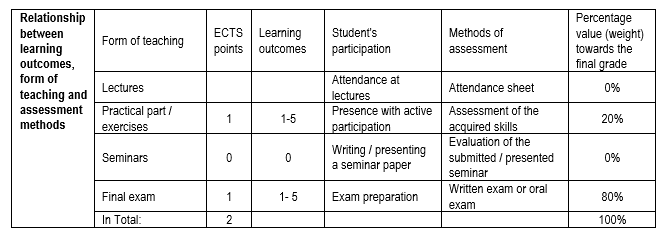Students will see and pass through basic knowledge of Transcranial magnetic stimulation and master the fact that the existing methods of treatment in psychiatry are long-term and in some cases ineffective. They will be informed about TMS which is an innovative and non-invasive treatment method, with very promising results and efficacy, with minimal adverse reactions in patients along with the possibility of reducing the need to implement pharmacotherapy. Transcranial magnetic stimulation is a modern and very effective procedure of treating affective, anxiety-related disorders, various painful syndromes and substituting the frequently mentioned and stigmatised electroconvulsive (electric shock) therapy.
Efficacy and safety of TMS in the treatment of psychiatric patients with depression, schizoaffective disorders, autism – complications of schizophrenia, PTSD. Efficacy in treating neurological diseases – Parkinson, dystonia, aphasia, fibromyalgia, Cerbrovascular insult, epilepsy, multiple sclerosis. Exercises – TMS device – application of innovative treatment – case review
Obavezna literatura:
- World Health Organization 2016. Depression: Fact Sheet Number 369. Dostupno na: http://www.who.int/mediacentre/factsheets/fs369/en/
- Lefaucheur JP, André-Obadia N, Antal A, i sur. Evidence-based guidelines on the therapeutic use of repetitive transcranial magnetic stimulation (rTMS). Clin Neurophysiol 2014;125:2150-206.
- Tor PC, Gálvez V, Goldstein J, George D, Loo CK. Pilot Study of Accelerated Low-Frequency Right-Sided Transcranial Magnetic Stimulation for Treatment-Resistant Depression. J ECT. 2016;32:180-2.
- Krstić J, Buzadžić I, Milanović SD, Ilić NV, Pajić S, Ilić TV. Low-frequency repetitive transcranial magnetic stimulation in the right prefrontal cortex combined with partial sleep deprivation in treatment-resistant depression: a randomized sham-controlled trial. J ECT. 2014; 30: 325-31.
Upon completion of the course, the student will be able to:
1. justify the work with TMS - the effectiveness with minimal side effects of said therapy;
2. apply tMS to psychiatric disorders;
3. apply tMS to neurological disorders;
4. analyze the application of TMS;
5. compare the application of TMS and medications.



